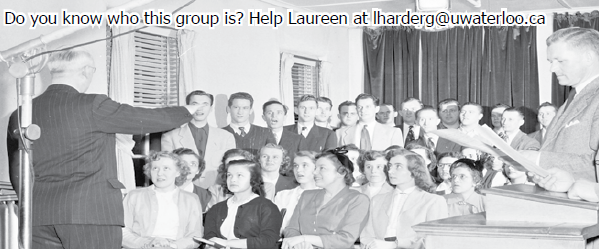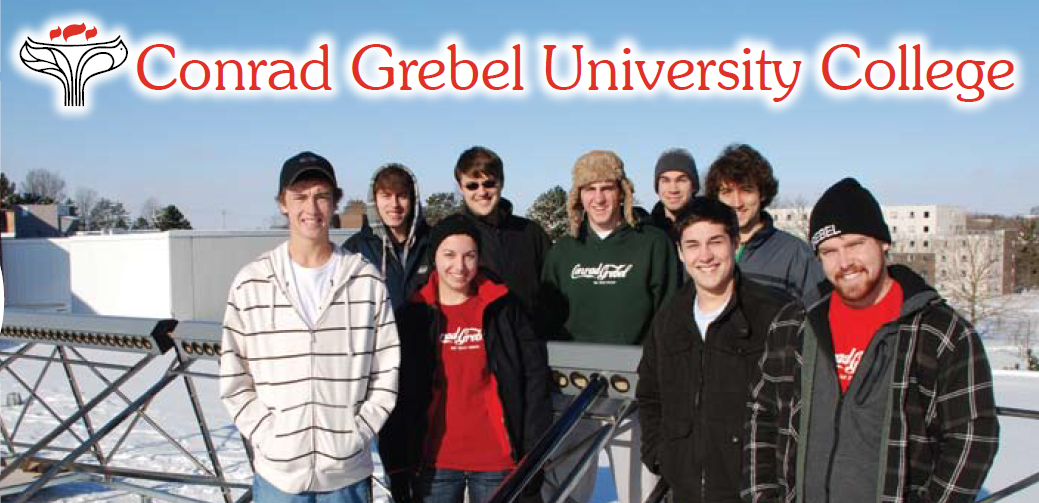
Sun showers
It started as an altruistic dream, but two years later, a vision for a cleaner and greener Grebel has been realized.A student group began meeting in 2009 intending to take a more active role in environmental issues in their immediate community. The group named itself Solar
Grebel and ultimately proposed a cluster of solar thermal panels on the college’s roof to preheat domestic hot water used for showering. With the support of Grebel administrators, these enthusiastic students researched the project, released the Request for Proposals, selected a supplier, and applied for grants.
Jonathan Van Egmond, one of the founders of the group, found the whole project process invaluable:
When Solar Grebel first formed, we had no idea where to even start. In completing this project, all the students involved learned what it takes to organize a building and energy project, from beginning to end.
Beyond practical knowledge, Madeleine Bonsma’s reason for joining Solar Grebel was to take a step towards saving the world and to help set a good example.
We as Westerners grossly misuse our resources, and as a result we desperately need to take action when it comes to environmental and economic justice, [she explains.] Solar Grebel provides a way for students to work towards a sustainable and fair society. This technology will ultimately save Grebel money, and it’s a great way for the college to lead by example – we hope that other residences and institutions will see the success of our project and want to try it for themselves.
Not only are the many students who have participated in Solar Grebel thrilled to see the results of their hard work, but the entire Grebel community is pleased about this installation. Jonathan thinks a lot of the excitement has to do with seeing the equipment first hand and actually benefiting every day from its use.
People at Grebel are generally conscientious and environmentally aware and are glad to see something like this happening, [adds Madeleine.]
After it was installed in December, Grebel’s first solar thermal collector began its endless cycle of heating glycol. Glycol is circulated through pipes that go between a tank in the boiler room and the panels on the roof. City water is passed through the tank and gets pre-heated by the coils of warm glycol before moving on to the boiler. On average, the cold water starts at 10°C. The 30 tube collector on Grebel’s roof will contribute to a 39°C rise after 8 hours of sun, for every 150 litres of water.
These three solar panels will produce 7.82 megawatt hours which will ultimately contribute to 936.9 cubic metres of gas saved annually - about 14% of Grebel’s current load. More importantly, Grebel’s CO2 emissions will be reduced by 1,981 kg.
At 7,200 British Thermal Units (BTU) per hour of heat production per collector on a full day of sun, EOS’ evacuated tube solar thermal system provided just the solution the students and administration at Conrad Grebel University College were looking for, [explained the installers and suppliers, Kittle Mechanical and Air Solutions, who also sponsored this project.] The installation of three S30 collectors provided a very cost effective green alternative; one which can be expanded upon in the future and has come in at a fraction of the cost of photovoltaic technology.
Solar Grebel has brought about the first commercial installation of a solar thermal collector in an institutional residence of its kind, and is also the first installation anywhere on the Waterloo campus. With hard work and determination, these motivated students managed to secure donations toward expenses of $48,072. This tremendous show of support is only the beginning!
[Once the last $1,600 has been raised,] we hope to expand our current 3-panel system over the next several years to a total of 9-12 panels, [explains Madeleine.]
Notable supporters include $10,000 from TD, $5,000 from Grebel administration, $1,500 from student council, $4,140 in grants from Ontario’s Ministry of Energy through the Ontario Solar Thermal Heating Incentive and the federal Department of Natural Resources through its Ecoenergy for Renewable Heat Program. Air Solutions of Cambridge Hydronic Solutions of Waterloo, and Kittel Mechanical were generous corporate sponsors.All donors are listed at Solar Grebel webpage.
Peace Medal
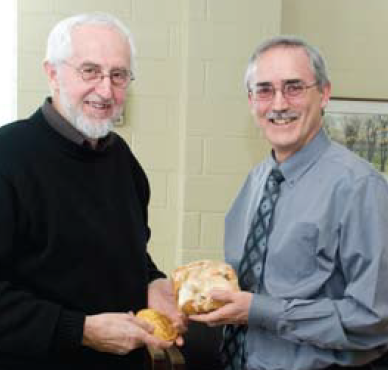
Ernie Regehr is Research Fellow at the Institute of Peace and Conflict Studies, Conrad Grebel. He is co-founder of Project Ploughshares, the Ecumenical Peace Centre of the Canadian Council of Churches and one of Canada’s premier peace and security NGOs. His publications on peace and security issues include books, monographs, journal articles, policy papers, and parliamentary briefs. Conrad Grebel President Henry Paetkau attended the ceremony and recounts:
While recognizing the significant contribution of Ernie Regehr and Project Ploughshares to the cause of peace, GG David Johnston departed from his prepared text to speak at length about his appreciation for the Peace and Conflict Studies (PACS) program at Conrad Grebel. He acknowledged its rootedness in the Mennonite faith tradition of peacemaking and noted that Ploughshares was born at Grebel.
It embodies the biblical injunction to turn swords into ploughshares, [Johnston explained.] I 'Googled' those words, [he continued,] and discovered that they were found in Isaiah 2. He then read the text and commented briefly on it. It was truly an amazing experience in the context of Rideau Hall!
From the president
By Henry Paetkau
The strategic goals guiding and shaping the college over the past four years emerged from a process initiated by the Board of Governors and led by alumnus and former Board chair, Andrew Reesor-McDowell, in September 2006.
The six priorities identified were:
- Review the mission, vision, and identity statement.
- Identify priorities for faculty replacements and appointments.
- Expand the graduate studies program.
- Enhance leadership development and experiential learning opportunities.
- Address library and archives staffing and space needs.
- Assess major facility and capital needs.
I’m pleased to report that we’ve made tremendous progress in realizing those goals!
In 2008 the board approved a mission statement calling us “to seek wisdom, nurture faith, and pursue justice and peace in service to church and society.”
A Long Range Academic Plan, addressing the impending transition of fully one half of our faculty over the next six years and identifying program priorities in that process, was developed under the leadership of Dean Jim Pankratz and approved in June 2010.
Our graduate Theological Studies program has had an increased number of full-time students since becoming a conjoint program with the University of Waterloo. This has strengthened the program greatly. Development of a Masters program in Peace and Conflict Studies is underway.
Mary Brubaker-Zehr and Ed Janzen have focused the multi-faceted and creative leadership and community building elements of our Student Services program as an exciting opportunity to “Explore, Discover & Connect.”
The Mennonite Archives of Ontario and the Grebel Library are thriving under the leadership of Laureen Harder-Gissing, who replaced Sam Steiner. In response to the urgent need for increased academic space, the Board is considering a $6.3 million capital project. Watch for more details shortly!
The strategic priorities identified four years ago have served the college well. With the 50th anniversary approaching in 2013-14, the time has come to envision the next chapter in Grebel’s history.
50th anniversary continues
The fall term of 2013 represents the 50th year that Conrad Grebel College has operated. In 1963 Winfield Fretz taught a course at the University of Waterloo and along with the founding Board Chair, Milt Good, began plans for the residence building that opened in the fall of 1964. Laureen Harder-Gissing has been commissioned to write a commemorative 50th anniversary book for the occasion. A committee chaired by Fred W. Martin is meeting to plan a variety of events, beginning with a reunion weekend on August 24, 2013. Mark the date and visit 50th anniversary reunion webpage for updates, information and memories!
The power of a dollar
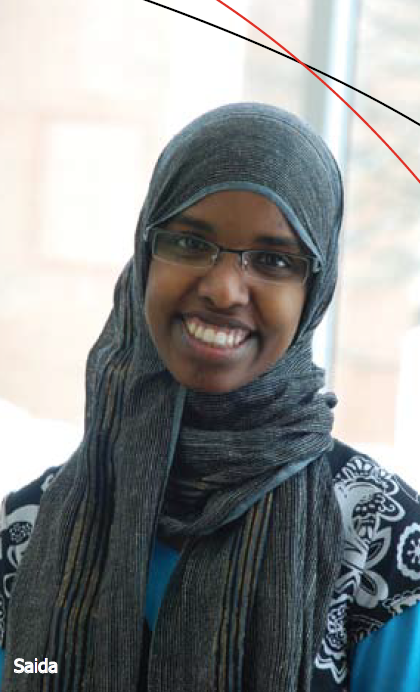
Two years ago, all Waterloo students voted to pay a $1.00 levy per term to support the World University Services of Canada Student Refugee Program. This $1 dollar is in addition to a student-initiated levy of $10 a term that Grebel students have agreed to pay since 2007 to help cover refugee student residence fees. In fall 2009, Grebel was lucky enough to welcome two new participating refugee students into the community – Saida and Fernand.
A strong, passionate woman, Saida is a Somali who lived most of her life with her family in a hostile Kenyan refugee camp. She was lucky enough to have attended high school in Nairobi and then volunteered with various NGOs who were providing humanitarian aid in and around her camp. Helping her people was Saida’s way of escaping the reality of her own hopeless life of queuing for water and rations, primitive housing, and unpredictable violence. As she sat on the plane coming to Canada, Saida left everything she knew behind. She felt that she had to take the risk:
I knew it was the only chance to save my life for the better. It was an opportunity to be a better person and to be someone in society.
Originally enrolled in Arts, Saida quickly made the switch to international development and peace and conflict studies. This program suits her enthusiasm for world politics, and will help her towards her goal of working in community development at a grassroots level.
Working directly with people in rural villages - that makes me happy.
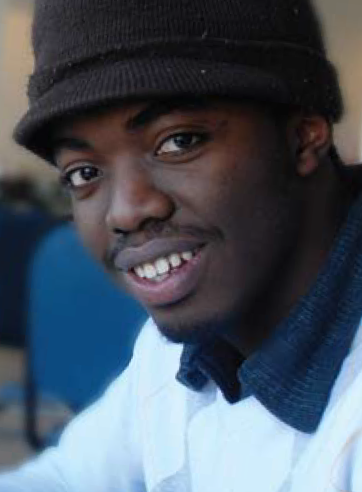
The transition to North American life has not been entirely easy. Saida enjoys Grebel’s sense of community and is close to her roommates in the Grebel apartments. While she finds the carefree lifestyle of some students difficult to relate to, she loves to sit down and talk about politics, current events, and soccer. The amount of food and water that is wasted in our society bothers her. Saida tries to maintain a simple lifestyle as she continues her studies at Waterloo.
Having too much helps you forget other people’s problem. But I don’t want to forget.
Fernand, who is currently studying science, also keeps his people high in his memory. While one of his brothers is now studying at Laurier, their only remaining family – another brother - still lives in the refugee camp in Malawi.
For Fernand, the opportunity to come to Canada and live at Grebel is
an absolute second chance to live again with dreams, plans, and significant hope.
He is thrilled to live in Canada and to be entitled to jobs, health care, and many other services not available in a refugee camp.
I am able to live with dreams again of being someone in the future – attending university is something I would never have dreamt of. Supporting the student refugee program is so important because it literally changes someone’s life. It gives hope to people who have nothing to live for and it creates means and opportunities for refugees to enjoy a better life.
In addition to student support, donations are welcome to strengthen the Student Refugee project at Grebel. Visit Annual Fund webpage or contact Fred W. Martin
Feature
Creating change
Imagine yourself as a young adult taking a university class that emphasizes collaboration, critical thinking, and dialogue. Your classmates are a wide variety of ages, with vastly different life experiences and backgrounds. This course is designed so that the knowledge and experiences of all the students is affirmed, with course themes focusing on the study of some aspect of our society’s approach to crime and punishment. Then picture this class taking place in a prison. Welcome to the "Inside-Out" program.
Simone Davis, a Toronto-based professor and a leader in the Inside-Out field, describes the program as a radical re-envisioning of what education can be. She says that
Inside-Out classes are taught sitting in a circle, and the teacher is there to facilitate discussion between all the students, not to lecture. By the end of the term, divisions that might have felt huge on the first day have been transcended, and everybody really owns the work they’ve been doing together. [Simone explains that] all participants in an Inside-Out class are invited to take leadership in addressing how crime is conceived, how justice might be enacted, and how violence can be understood and transcended. We believe that by studying together and building class projects that can be applied in the real world, those of us inside and outside prison can help our communities become more inclusive, just, and peaceful.
This fascinating approach to education caught the attention of Lowell Ewert, Director of Peace and Conflict Studies at Conrad Grebel. As a result of conversations with Simone, Lowell has been discussing the possibility of offering one or more Peace and Conflict Studies (PACS) courses in an Inside Out format during the 2012-13 school year.
According to the reports I have heard, [Lowell says,] the experience is transformative - both for inmates and for students. It is not soft, fuzzy, or naïve but it acknowledges that change can happen, people can learn, and that at the end of the day, we are all in this together.
Cheryl Flamenco Steiner (’92) is Assistant Warden at the Grand Valley Institute for Women (GVIW) in Kitchener. She is thrilled that GVIW is the first correctional facility in Ontario to partner with the Inside-Out Prison Exchange Program in Fall 2011 when Wilfrid Laurier will begin offering a class. She believes that this program is truly a win-win-win for universities, correctional facilities, and their students.
Recognizing the impact of other community-based programming on women at GVIW, I can only expect that the women will benefit immensely from the presence of the ‘outside’ students. Learning within this context must be extremely normalizing and stimulating for incarcerated participants. Interacting with members of the community has a profound and empowering impact on the women, and I expect that this type of programming will reinforce the women as equals to those from the outside and will give them the opportunity to broaden perspectives and analyses based on their lived experience.
Another PACS alumni, Barb Toews (’92) has been teaching a restorative justice class in the Inside-Out model through Haverford College in Pennsylvania for 4 years and works sporadically for the national Inside-Out office. She adds that
the restorative justice content rocks most students’ worlds and, for the outside students especially, the prison context shakes things up for them. Most important though, are the relationships that develop between the inside and outside students around course content and simply because they are all people sharing this experience together.
[The greatest impact that Barb has seen in her work is that] people have been inspired to create change in their own lives and relationships - in prison or in their communities outside.
Much of Barb’s work has been developing programs with incarcerated individuals. She has witnessed how the restorative justice philosophy resonates with them and how they have, in turn, created their own projects inside prison that take into account the prison context and the backgrounds and experiences of those who are incarcerated.
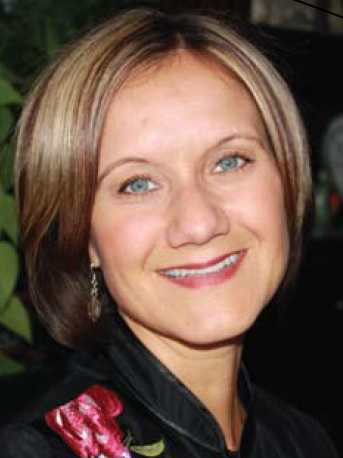
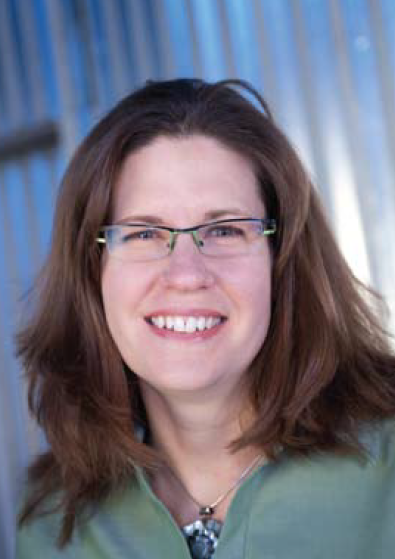
Safely embraced
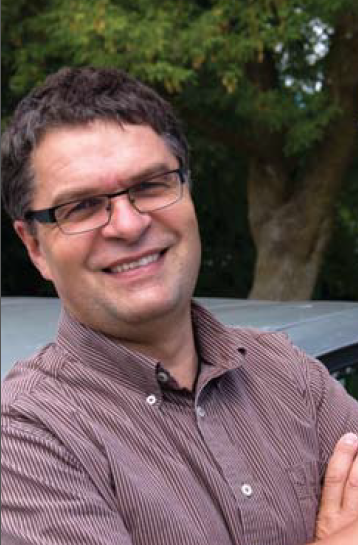
According to Mennonite Central Committee (MCC), the risk of former inmates to re-offend and re-victimize in the community is reduced when they are offered both support and the opportunity to be accountable. Small circles of volunteers, in conjunction with MCC staff, become new communities for men whose crimes have marginalized them from society.
Circles of Support and Accountability are groups of 4-7 volunteers who are primarily from the faith community. They are committed to enhancing public safety by supporting community re-entry for former high risk offenders through covenanting, meeting, and walking daily with them. The full circle meets on a regular basis and operates in close partnership with local police. It serves as a caring community, offering support with concern that public safety not be compromised.
Rick Cober Bauman (’85) has personally participated in Circles of Support and Accountability. It has shown him “the upside-downness of the Gospel”. As a student, Rick focused on Religious Studies and History, but sampled many of the arts, including PACS, Psychology, Political Science, and Music. He spent a lot of time reading and talking about religion and credits Grebel for keeping him passionate about faith questions. This “rich faith foundation” he developed at Grebel resulted in a readiness to work hard in the church. Working of Mennonite Central Committee for a total of 22 years, Rick is now the Executive Director for Mennonite Central Committee Ontario.
[He loves that he] gets to be part of supporting the church, with all our warts and blemishes, as we try to respond compassionately to the needs of the world.
[To explain Circles of Support, Rick says,] when there is a man whom we fear and want to run from in order to be safe, it is in fact in the embrace, in the inclusion, that communities are made safer, and someone deemed unlovable is brought back into the community.
On a practical level, this ministry is important because it keeps communities safer. Included people are far less likely to re-offend. But on another level, Rick says:
It requires us to recognize that even the offender is part of us, and we need to deal with him in our community. Not in reckless or risk-taking ways, but by creating careful, structured ways to both support men and hold them accountable.
[Rick has heard the strength of Circles of Support and Accountability described as] giving a guy just out of jail more people to ‘not screw up for.
If you are interested in joining a Circle of Support through MCC Ontario, contact Eileen Henderson at 519-745-8458.
A different path
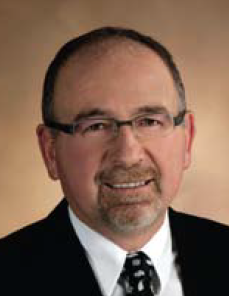
After his second year of school, one of Jim’s Grebel friends told him about a summer job in a school/group home. Prompted by this enjoyable experience working with people, Jim signed up for a number of sociology and social work courses - one of them taught by a probation officer. As part of a pivotal class assignment, Jim worked with a young person under probation supervision. This direction interested Jim so much that the next summer he volunteered with Mennonite Central Committee and worked with boys on probation.
Ultimately Jim became a Probation and Parole Officer for 30 years! His job entailed supervising court-imposed terms for people who continue to live in the community, as well as working with people serving the latter part of their sentence in the community. This less than glamorous sounding job was actually quite rewarding for Jim. He especially enjoyed the hopefulness of the people he worked with – they had just come out of a bad part of their lives and were eager to start over and not make the same mistakes again. Reflecting on his 30 years in corrections, Jim is especially thankful for his family support system and church community.
In his retirement, Jim continues to help people make goals and work towards them – as a financial consultant in Milverton. His wife Rosella works at Grebel as Accounting Assistant. Contact Jim at jleis@peakgroup.com.
A unique book club
Looking around at the dozen or so very engaged and opinionated members of her book club, Grebel Professor Hildi Froese Tiessen has difficulty believing that these women she has discussed various bestsellers with are actually inmates in the Grand Valley Institution for Women.Hildi, along with friends Margaret
Loewen Reimer and Sue Steiner, seized the opportunity to form a book club at Grand Valley, one of Canada’s five federal penitentiaries for women, out of pure fascination after hearing personal stories from writer friends about rewarding experiences they have had working on writing and reading in prisons.
Both the inmates and these three Mennonite women know only as much about each other as each chooses to share. The inmates vary in age from about 20-55 and many of them have children. Some are looking forward to their imminent release, while others are “lifers”.
[Hildi marvels about how] except for the odd comment suggesting that their lives as inmates might not afford a full range of normal experiences, there is little in what they say to suggest that they are actually prisoners!
Frequently expressing their gratitude for this involvement, the prisoners in this group have all chosen to participate in the book club. Hildi and her colleagues remain bewildered by the fact that these women are actually in prison.
I am struck by what a waste the prison seems to represent. These women – most of them – would likely benefit greatly from constructive rehabilitation opportunities on the outside.
Hildi looks forward to future interactions with these interesting and insightful women.
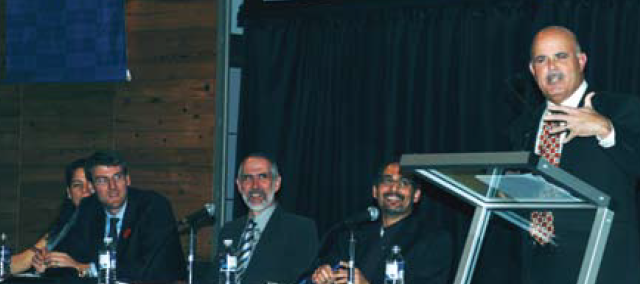
Centre for the Study of Religion and Peace is Launched
On November 11, 2010, the Peace and Conflict Studies program held a colloquium entitled "Fear and Hope: Religion’s Role in Conflict and Peace" at the Centre for International Governance Innovation. The colloquium featured Dr. Luis Lugo, Director of the Pew Research Center’s Forum on Religion and Public Life, who presented the results of an in-depth study of Christian-Muslim relations in sub-Saharan Africa. PACS Professor Nathan Funk introduced Dr. Lugo as well as 5 diverse respondents from the University of Waterloo, Wilfrid Laurier University, and the Department of Foreign Affairs and International Trade. He noted that the occasion marked the launch of Conrad Grebel’s new Centre for the Study of Religion and Peace (CSRP), which aspires to advance knowledge and awareness of religious contributions to peace and to enhance the capacity of religious communities to engage contemporary conflict issues and practice the peaceful values they profess. The event was made possible by the Frank H. Epp Memorial Fund.
Peace and Conflict Studies
Forgiveness: the Amish Glue
By Alyshahn Kara-Virani
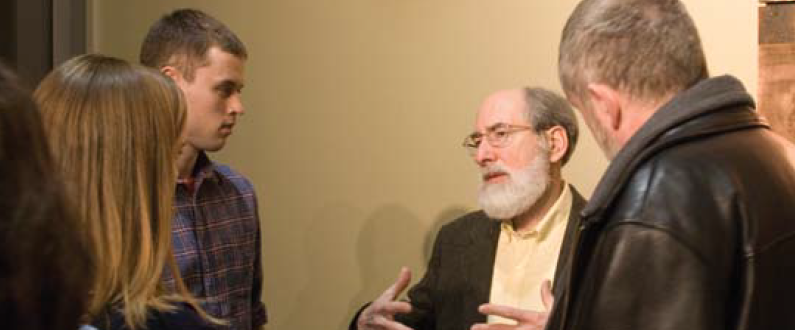
Throughout the lecture, Dr. Kraybill discussed why the Amish community was able to quickly forgive a man who had killed and injured so many of their young daughters. He spoke about what forgiveness is and what it is not. Citing the physical and mental health benefits, and the commands of religion, and the potential for reconciliation, Dr. Kraybill closed his lecture by noting that Amish faith and practices gave them “forgiveness preparedness” when they faced this terrible crisis.
Through this lecture I learned about the meaning of emotional strength and the power of community. I was amazed that an everyday act like forgiveness could act as the glue to keep an entire community together. I left the lecture with many questions buzzing in my mind. What would have happened to the community and the surrounding area if all those affected were unable to forgive? Would the community have endured and become such a strong beacon of what we can accomplish with such a seemingly simple act?
More than anything though, the lecture and the story of Nickel Mines really puts into perspective the trivial things we hold grudges about every day. If it is possible to forgive such an atrocity, then how can we possibly hold a grudge against the person who scratched our car or ruined our favourite shirt?
The Rodney and Lorna Sawatsky Visiting Scholar Lecture was established in 2004 to commemorate Rod’s tenure as faculty, Dean, and President and Lorna’s active involvement at Conrad Grebel University College.
Conflict Resolution in the Schools
Retired principal and educator of 32 years, Fae Samuels instructs the bi-yearly course "Conflict Resolution in the Schools: PACS 314." Having taught at all levels of the education system and worked in eight very difficult schools, Samuels brings varied and interesting experiences to the course, blended with practice and theory.
"Conflict Resolution in the Schools" was created to meet the needs of participants entering the teaching profession, and to provide the strategies and tools needed to create a safe teaching and learning school environment. However, anyone who plans to work in a school or with young people will find the course beneficial.
The course also prepares participants to create an environment that is conducive to teaching and learning so that school can again become a place of peace. The course provides tools, skills and strategies to complement a teaching certificate. Some topics covered include policies and regulations of the Ministry of Education; violence in schools; gangs; programs to implement to keep your classroom and school community safe; how to implement a school-wide bully program; how to mediate a conflict and train students to become peer mediators, how to reculture your classroom and school, critical incidents and more.
PACS 314 will be offered in the spring term on Mondays and Wednesdays, 10:00 am - 11:30 am. Email pacs@uwaterloo.ca for more information.
Music
"Ideas Starts Here"
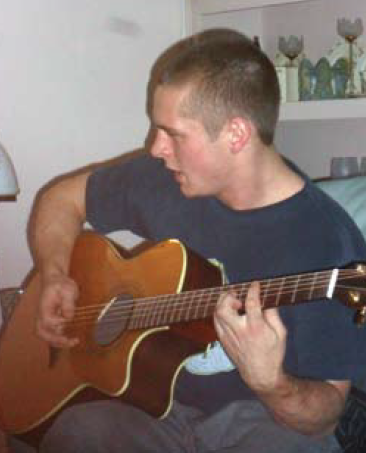
Pitching his idea to his fellow students, Kyle recruited a number of aspiring and qualified teachers ready to give lessons in piano, guitar, percussion, violin, and vocal music. He set up a website to connect the teachers with young students, and Music Students Teach was born! Teachers make 75-80% of the cost of every lesson and are provided with professional development workshops twice a semester. Some teachers will come to the student for a lesson and some have home studio locations. Visit Music Students Teach.
East-West Music Series
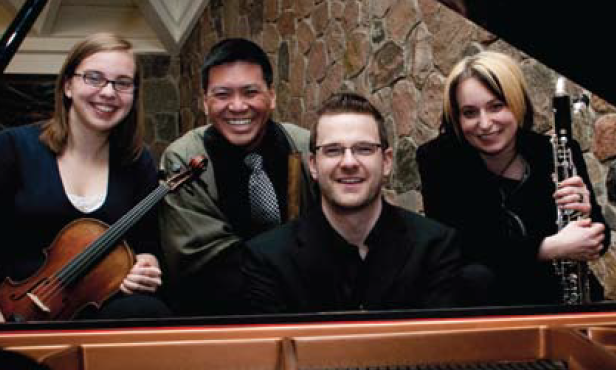
One of the members in the East-West Music Ensemble is Kathryn Ladano (‘99) - a Music graduate who specializes in bass clarinet. Since her studies at Grebel and Waterloo, Kathryn received her MMus at the University of Calgary. She specializes in contemporary music and free improvisation, and teaches musical skills at Wilfrid Laurier University.
My studies at Waterloo completely shaped me. In first year, it introduced me to contemporary music, which I fell in love with. I was encouraged to partake in directed studies which allowed me to branch out and learn about alternate techniques on my instrument.
Kathryn uses her love of new music and improvisation as the East-West Music Ensemble explores music influenced by Eastern culture and creates new works. The next concert is on Wednesday, May 18, at 7:30pm in the Renison Great Hall.
Student life
A chance to change a life
By Ellery Penner
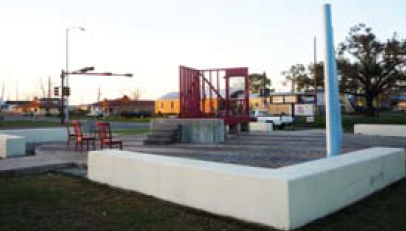
The 43 of us spent a day together exploring New Orleans before breaking into two teams. Twenty-six of us headed to Pass Christian on the coast of Mississippi to serve with Mennonite Disaster Service (MDS). The rest of us remained in New Orleans, working with an organization called Operation Helping Hands. We all anticipated a week of helping to restore damage done during Hurricane Katrina, and we certainly had that incredible opportunity. We also experienced so much that we could never have anticipated.
The Pass Christian team enjoyed a week on the coast, splitting into six teams of volunteers that each learned a different building skill for the week. Among other tasks, teams learned how to drywall and install flooring. We spent our evenings growing together through worship, relaxing at the beach, and hearing from those directly affected by Katrina. We enjoyed the good Mennonite cooking, and the time we got to spend with the MDS volunteers with whom we grew close to throughout the week.
The New Orleans team spent the week in the heart of the city, restoring the exterior of two different homes through painting, caulking, and re-siding. We were blessed to get to know the homeowners and even some surrounding neighbours while we witnessed life in lower-class areas of the city. We had the opportunity to spend time in the French Quarter, and a highlight for the week was a tour through the Lower Ninth Ward, where Katrina hit hardest. Our accommodations, an enormous old mansion with a very unique history, left quite the impression and provided many stories and memories.
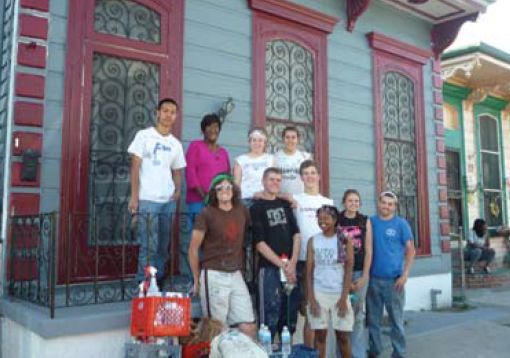

Living out love
What does it mean to live out love, every day, in every way, in one’s life? Caleb Gingerich and Mike Chong have initiated an ongoing conversation with their fellow students about how,
given the demands and limitations of university life, we can live a life that expresses love for ourselves, our community, our neighbourhood, our city, and our world.
We wish to explore both the theory and motivations for living out love, and discuss and encourage actually living it, [Caleb explains.] The conversation is organic - growing out of participants’ desires, concerns and interests. We’ve started the term discussing motivation and guilt, then the true nature of humanity (fundamentally good, or evil?).
Tackling big questions with few answers, the group’s purpose is to practice living a life of love, and seeing the world not from a place of fear, but from a perspective of hope, joy, peace, justice, and love.
We are all Treaty People
It matters what stories we tell,
says Dr. Roger Epp, Professor of Political Studies and the founding Dean of the University of Alberta’s Augustana Campus in Camrose.
For the descendants of Mennonite settlers in present-day Ontario and in the West, as for all Canadians, historical accounts rarely acknowledge the existence of aboriginal communities regardless of close geographic proximity.
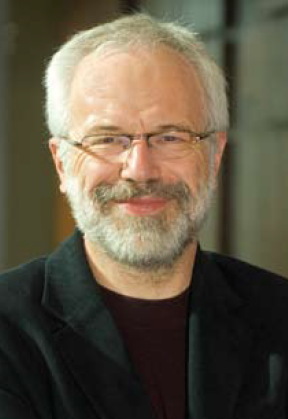
The claim I want to advance in these lectures – that we are all treaty people, by inheritance, by virtue of living where we do – is both a provocative and a conservative one. It challenges the story that there was ‘nothing here when we came.’ It faces up to the ‘settler problem.’ It suggests real, enduring obligations, [explains Epp.] If Mennonites have any role in the important work of reconciliation and reciprocity, I argue, it is rooted not so much in our theology as in a capacity for careful listening, an attentiveness to place and story, and the courage to claim a complex inheritance.
News
Len Enns was commissioned this winter to compose a celebration piece for Wilfrid Laurier University’s hundredth year. As an alumnus himself, Len was pleased to write this inspirational piece for choir and piano. Entitled “With Light Unfailing” (WLU), it is based on an actual quote from Sir Wilfrid Laurier himself: “... you have a safe guide, an unfailing light if you remember that faith is better than doubt and love is better than hate...” The premiere takes place on March 26 and 27, performed by Laurier students and alumni.
Len Enns has also composed a new song cycle that will be premiered soon in Winnipeg. Commissioned by Mel Braun, the set of songs for voice and piano is called “Behind the Seen” and is about what we don’t see but actually live by.
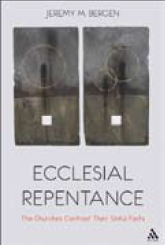
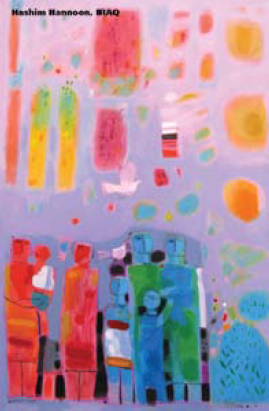
Birgit Moscinski is a new face at Grebel. She is the new administrative assistant to the academic dean and the graduate Theological Studies program. She replaces Chris Matsuda who worked at Grebel for nearly 20 years.
Rebecca Gibbins (‘03), previously a senior resident, has stepped in as Recruitment and Events Coordinator and Conference Manager while Meg Bauman (‘04) does a one year secondment position at UW.
Erin Zehr and Felipe Gonzalia have been appointed as Campus Hosts beginning in June. Erin is a student at WLU studying concurrent education and Felipe is a student at WLU pursuing a BA in Communication Studies.
Awards
Connected & Rewarded
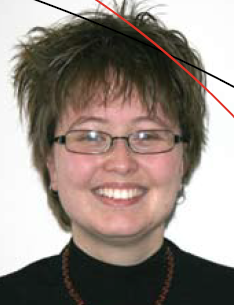
Sarah’s academic achievement, her zeal for preaching, and her enthusiastic participation at TMTC earned her Conrad Grebel’s highest valued academic award – the A. James Reimer Award at the Toronto Mennonite Theological Centre. This $8,000 award will allow Sarah to continue studying full-time to achieve her dream of teaching homiletics.
The award is also important, [Sarah explains,] because it recognizes the importance of financial support for doctoral education. Doctoral studies have not played a large role in the history of the Mennonite church, but this award recognizes the need to support students who are pursuing doctoral studies in service of the church.
The A. James Reimer Award at the Toronto Mennonite Theological Centre was established in recognition of Professor A. James Reimer. It is awarded to active TMTC students who have demonstrated commitment to the life of the Mennonite Church and its institutions and who demonstrate solid academic ability. Established with an initial gift from Al Armstrong and Marlys Neufeldt, matching funds and donor contributions have taken this endowed award over its goal to a book value of $268,000.
No stranger to Conrad Grebel, Sarah completed her BA at Waterloo in English and History, prior to pursuing a Master of Theological Studies degree at Grebel.
Winners of 2010-2011
Grebel congratulates these scholarship and award winners. Thank you to all those who have set up memorial scholarships and awards to honour family members, as well as friends who have given freely.

Agnes Giesbrecht Choral Music Scholarship
Vincent Kong
Clemens Scholarships in Music
Katelyn Harrington, Katie Honek,
Joscelyn Burgmann, Yvonne Chan
John Ford and Winston Harrison Church Music Award
Rosalind Adams
The Jean Caya Music Award
Chealsea Gutzman, Jane Honek,
April Mansfield, Laura McConachie,
Sophia Werden Abrams
The Rudolph and Hedwig Rempel Music Award
Laura Easson, Phil Rempel, Matthew
Attard
Becky Frey Student Scholarship
Karsten Cheng, Catherine Duncan
Elliot I. McLoughry Fund Scholarship
Lainna Buch
Global Conflict Management and Transformation Award
Rudi Oballoker Okot,
Odile Vander Zaag
Lina Wohlgemut Award
Rachel Jantzi
William Dick PACS Field Study Award
Sara Brubacher
Peter C. and Elisabeth Williams Memorial Fund Scholarship
Chaylene Grieve-Saunders,
Kholiswa Neufeld, Devon Spier
The Vic and Rita Krueger Family PACS Award
Rachel Jantzi, Rachel Krueger,
Nicole Piett, Megan Rowe
PACS Internship Award
Karsten Cheng, Timothy Ruppel,
Erika Toffelmire
The Walter and Mary Hougham PACS Award
David Billedeau, Adrienne
Schellenberg, Jessica White
Graduate Student Support
Ben Cassels, Laura Stemp-Morlock,
Andrew Stumpf
Jacob H. Janzen Memorial Award
Jared Both, Allison Murray
The Jane Plas Scholarship
Allison Murray, Dana Honderich
Magdalena Coffman Scholarship
Bethany Tulloch, Allison Murray
Women of MCEC Theological Studies Award
Christina Edmiston, Amanda Zehr
The Reimer Scholarship in Theological Studies
Laura Stemp-Morlock,
Andrew Stumpf
A. James Reimer Award at the Toronto Mennonite Theological Centre
Sarah Freeman
The Stephen Family Theological Studies Entrance Award
Andrew Stumpf
The Clifford Snyder Memorial Bursary
Ben Cassels, Dana Honderich,
Andrew Stumpf
Jacob Andres Award
Joel Derksen
Deans Residence Award
Kyrie Vala-Webb
Alice Eisen Leadership Award
Andrew Alkema, Natasha Moes
Arnold C. Gingerich Memorial Fund Award
David Penny
Dorothy E. Bechtel Award
Bailey Burgsma
Good Foundation Scholarship
Eric Kennedy, Michelle Metzger,
Caleb Redekop
The Hildebrand Family Award
Sarah Morden, Kristen Ollies,
Jacquie Read
The David Regier Student Award
Catherine Duncan, Joelle Ritsema,
Julie Wilson, Meghan West
Robin Jutzi Scholarship
Bethany Cressman, Saido Sheikh
Stauffer Entrance Award
David Brubacher, Maria Driediger
Lucinda Robertson Scholarship
Andrea Blezy
The Sauer Family Award
Josh Enns
Nathan Paul Krueger Wiebe Award
Benjamin Scott, Rebecca Dyck,
Danielle Hoover, Ben White
George E. and Louise Schroeder Award
Karsten Cheng, Victoria Groh,
Sarah Pries
The Student Council Award
Rachel Clayton, Karl Reimer
Grebel Student Award
Amaryllis Sum, Caleb Yeung
Upper Year Residence Award
Ellery Penner, Katie Penner
Joan Weber Award
Andrew Pauls
40th Anniversary Award
Rachel Clayton, Blaine Cressman, Rob Dam, Alex Driedger, Jesse Dyck, Elise Fairholm, Caleb Gingrich, Tye Landels, Sarah Penner, Jeremie Raimbault, Jacquie Read,
Ruth Wright-Gedcke
People
Janna Lyn (Ropp) Cressman (’07) will be the camp director at Ontario Mennonite Music Camp for 2011. Janna Lynn has worked extensively with youth, both within her church communities of East Zorra and Nith Valley and the various school communities she has taught in as an Occasional Music Teacher with the Waterloo School Board.
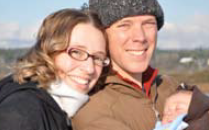
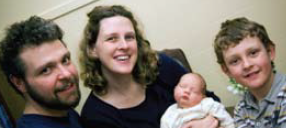
Len Rempel (’84) has been appointed the new director of finance and administration for Mennonite World Conference. Previously he worked for 10 years in senior management at Ten Thousand Villages. Len lives in New Hamburg with his wife Kathleen (‘85) and three children.

Here’s to feeding our bodies and our souls and having a little fun along the way.
Visit Cooking With Sin website.
Christine Dhingra Cole (‘86) and her husband Jeffrey have recently moved back to the Kitchener-Waterloo area. Christine has been working as a Recreation Therapist and Rehabilitation Therapist in hospitals and in the community. Most recently she has been working with people with brain injuries. The Coles have traveled extensively by sail around coastal Europe while home-schooling their two children. They are refinishing their sailboat and dreaming of their next adventure.
Eric Lepp (‘05) is continuing his education, pursuing a Masters of Peace Studies at the Kroc Institute for International Peace Studies at the University of Notre Dame.



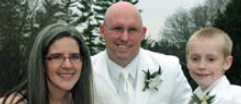
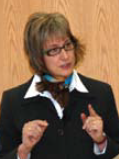
Rob Neufeld (‘88) has arranged an exchange with a teacher in Australia that began in January. He and his wife Trish, children Ben and Jake have traded their life in Elora for a year down under.
Development
On February 10th, the Board of Governors met to hear a report from the Building Task Force. This group of board members and college administrators has been working with architects Paul Dowling and Marty Lillepold of Cambridge to explore options to expand the academic building. This exploration is part of the 2006 strategic plan to enlarge the Grebel library, build a new archive, expand Music, PACS, graduate, and community education facilities, and create a welcoming main entry. These capital improvements are critical to sustain and expand the current academic programs in preparation for the college’s sixth decade.
The board approved a schematic design and a budget of $6.3 million for a proposed addition to the current academic building. The design will double the library space, triple the archive storage capacity, and add over 5,000 square feet to the music facilities. The designs include a new community education and board room and a seminar room for graduate studies.
In order to move this initiative forward, the board has authorized the services of a Building Project Manager. In April the board will consider the appointment of an architect to prepare construction drawings as well as the launch of a public fundraising campaign.
 Annual Fund Update
Annual Fund Update
Each year Grebel relies on the support of donors and alumni to keep Grebel’s unique programs strong and financially viable. Donations support our residence and academic programs. As of February 28 we are 85% of the way to our April 30th goal of $365,000. For more information visit grebel.uwaterloo.ca/giving
The Grad Class Challenge Project
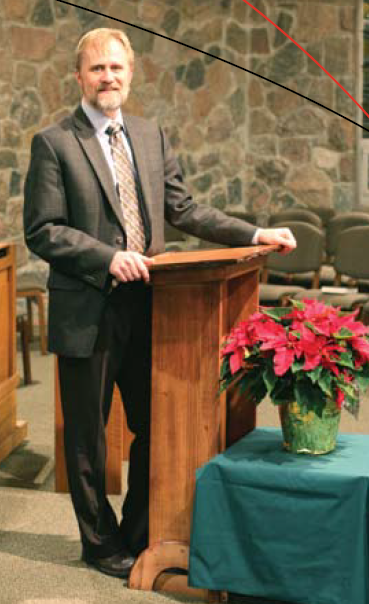
Our Heritage of Sound
By Laureen Harder-Gissing
Someone once said that radio is like television except the pictures are better. Audio recordings of the human voice in song, speech or conversation are a powerful means of conveying thoughts, emotions and ideas, especially when those voices are no longer with us.
The numbers alone speak volumes: the audio collection at the Mennonite Archives of Ontario consists of 1,340 cassettes, 250 reelto- reel tapes and dozens of CDs. The most recent addition is a series of interviews with southeast Asian refugee families who were sponsored by Ontario Mennonite churches in the late 1970s. The most popular for researchers is the Alternative Service in World War II oral history project, which collected the stories of 33 conscientious objectors in 1974-75. The largest single collection consists of 239 recordings of Mennonite worship services. Descriptions of all these collections are available on the archives website.
Any time a machine is needed to read information, that information is vulnerable. Audio recordings, whether analogue or digital, are especially vulnerable because of rapid changes in formats and equipment, and the inevitable degradation of tapes and CDs. An ongoing project at the archives is the digital copying of sound recordings into archival formats. The archives is looking forward to a planned expansion with more space to properly store originals, make the copies needed to keep them accessible, and allow visitors and researchers to enjoy our heritage of sound.
